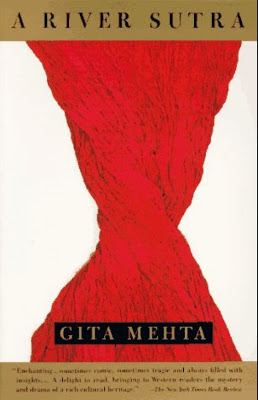If anything, Rohit Gore wins more brownie points for unexpectedness. I was revisiting my blog for when I reviewed his debut book, Focus, Sam and remembered liking it for exactly the same reason. So when he wrote to me asking to read and review his two new books, Circle of Three and Guardian Angels, I had to agree.
Circle of Three is another unique story by Gore. With three interesting protagonists - each vastly different from another - Gore's story is about finding hope and strength in the most unexpected places. 13-year-old student Aryan, 30-something screenwriter Ria Marathe and 60-something forgotten author Rana Singh Rathod are struggling to come to terms with life, until they cross each other's dark paths and become inadvertent beacons. With each other, Rana finds inspiration to write again, Aryan finds his identity and Ria, the courage to live again.
Gore's writing does not make any dents in your heart, but he has a good eye for detail. He paints his characters with deliberate care, bringing them effortlessly to life. It isn't hard to imagine a Rana in his delusional pomposity, an Aryan with his insecurities and a Ria withering away with her terrible loneliness and misplaced guilt. From these depths of despair, you see Gore pull them out gently, his story dripping with tender emotions. The unlikely trio help each other overcome the darkest phases of their lives and emerge better, stronger people.
What Gore lacks is a capacity for humour and finesse. The plot, while tragic, offers a fair scope for comic relief, but Gore's brand of funny is hardly that. Secondly, he is too casual a writer. His pedestrian use of language doesn't charm me, but may work for people who favour 'light' reading. And oh, Gore also needs to work with better publishers and cover designers.
Gore may have some way to go before he becomes a master storyteller, but he pulls the most unusual stories out of his literary hat. With fresh stories like this, Gore might just evolve into one of the better Indian English authors of our times.







































